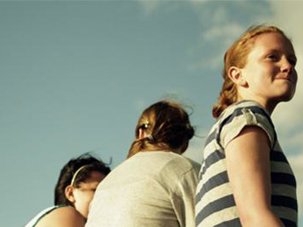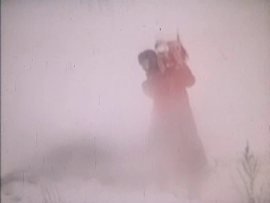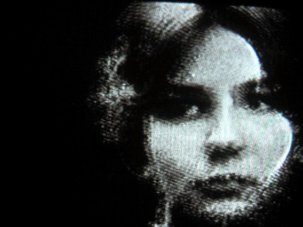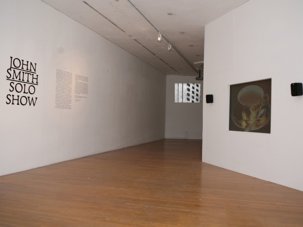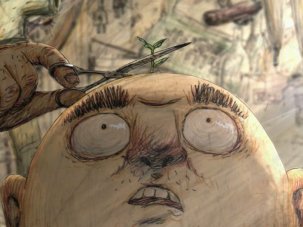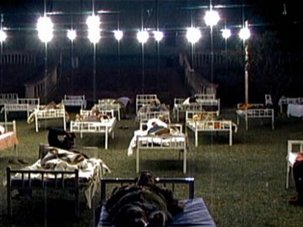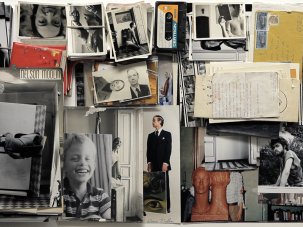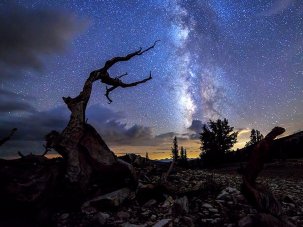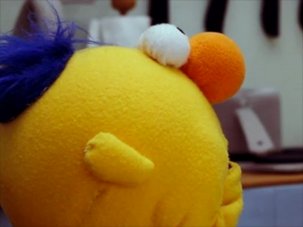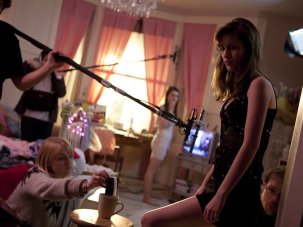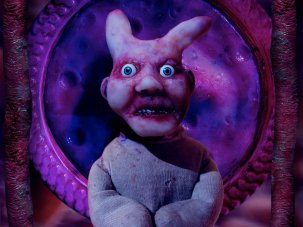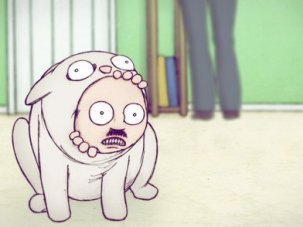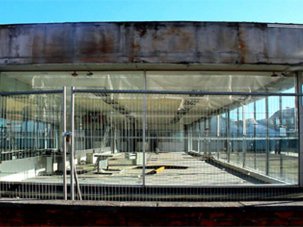Web exclusive
1. Nick Bradshaw on the special and international programmes.
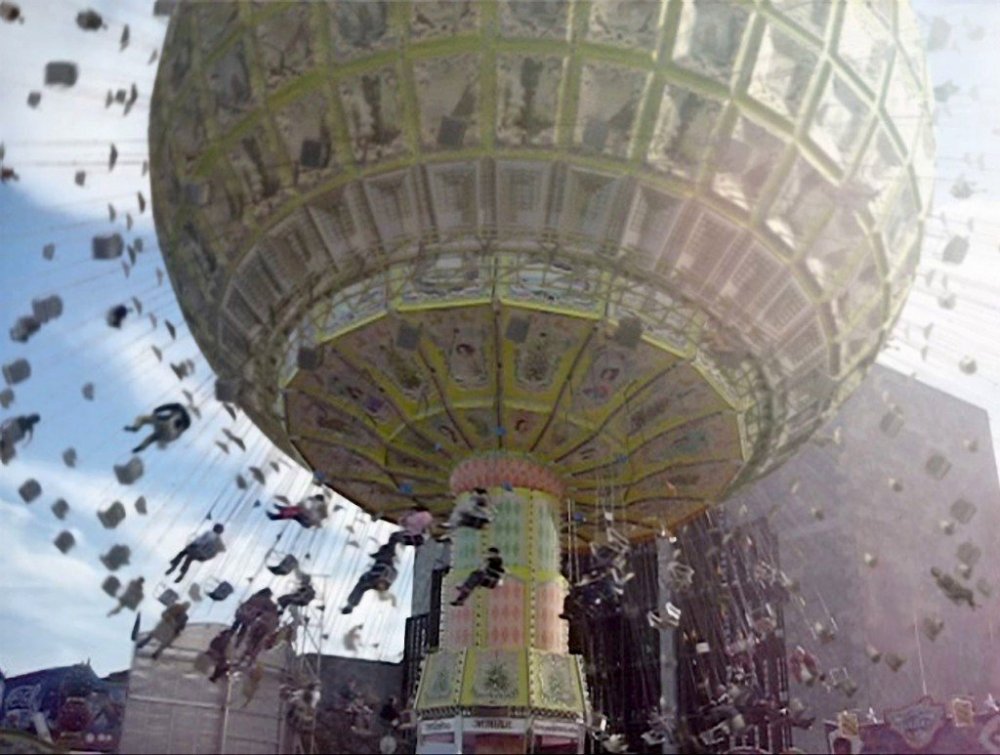
The Centrifuge Brain Project
Thursday night, a cold tent beside the river in Temple Meads, and three self-described “Finnish cross-dressing zombies” are hammering out a sound to raise the dead before a screen unspooling a Soviet science-fiction odyssey from 1924.
|
Encounters Short Film and Animation Festival 18-23 September 2012 | Bristol, UK |
Aelita Queen of Mars is not a short film – and it would take a long time to account for its Byzantine plot, which fascinatingly strives to contain contemporary domestic discord and detective drama, neo-bourgeois Muscovite corruption and interplanetary erotic fantasy. Accompanied by The Cleaning Women, who play a kind of post-rock funk on self-made instruments, it filled the silent cinema/live music slot occupied in 2011 by John Garden and Tony Orrell – but it also telegraphed some of the themes and international flavours of this year’s Encounters festival. This was the first edition under the auspices of new head programmer Gaia Meucci, and it was the first to hop forward in the calendar (to entrench the festival’s role as a ‘qualifying festival’ for the Academy Awards) from November to September and British Summer Time; even before the eye-popping costume changes of Aelita and The Cleaning Women, I’d seen the shift marked by the sight of Bristol’s students running around town in their pyjamas for freshers’ week.
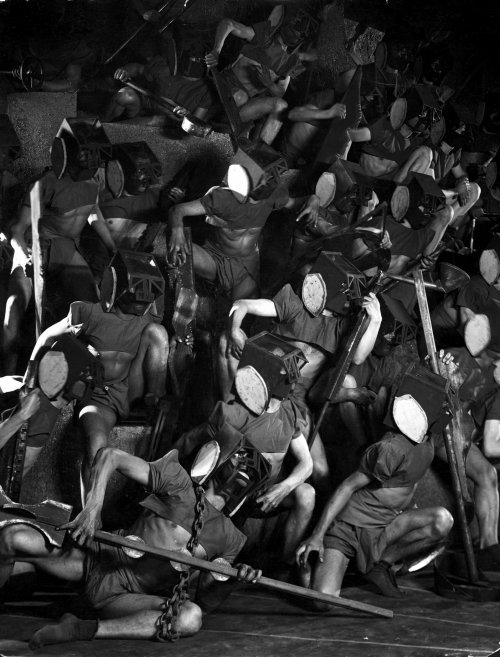
Aelita, Queen of Mars (1924)
So, there was a second tribute to forgotten Soviet technological innovations in the form of twin retrospectives of three-strip colour animation and 3D animation, both pioneering Soviet developments from the 1930s and 1970s (partly in response to Western technological boycotts) which had fallen by the wayside; recently restored and digitised, some of the films were making their international premieres in Bristol. The colour animation (four Mosfilm puppet films – Aleksander Ptushko’s The Fox and the Wolf (1936) and Tale of the Fisherman and the Fish (1937), Georgi Elizarov’s The Miraculous Traffic Light and Sarra Mokil’s The Wolf and the Seven Goat Kids (both 1938) – and one Lenfilm graphic animation, Aleksandr Sinitsyn and Vitalii Siumkin’s 1937 Teremok) constituted an admirable quintet of anthropomorphic adventures.
But it was the 3D collection that really shone. The programme spanned a fragment of a live-action 1940 concert film, Land of Youth, and Andres Tenusaar and Aleksandr Melkumov’s 2007 CG animation The Scarecrow; sandwiched between were three late-70s gems. Elbert Tuganov’s The Souvenir suggested a post-Vietnam (or Afghanistan?) parable of an third world-destroying soldier who brings back to the city a plant that turns wild and vengeful. His fellow Estonian Heino Pars’s marvellously daffy When Men Sing (1979) featured a time-travelling male choir who abide their way through dinosaur and ice ages in full throat. Russian master Ivan Ivanov-Vano’s 1979 The Magic Lake (“dedicated to the masters of painting headscarves”) meanwhile rendered the rich textures of its model sets (a foggy forest and its demon spirits) in crisp and beautiful 3D detail.
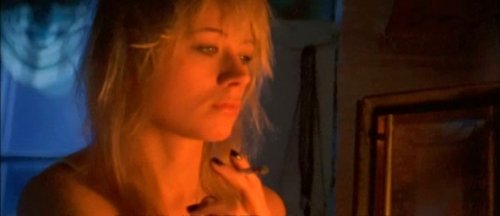
The Little Snow Animal (Lumikko)
There was a wider Finnish theme, too. Joining Aelita in the Temple Meads tent was a screening of the first part of Peter von Bagh’s Midnight Sun Festival masterclass mashup Sodankylä Forever (a meditation on cinema and twentieth-century wars compiled from counsels with such festival guests as Sam Fuller, Milos Forman, Andrei Konchalovsky and Francis Ford Coppola). There were twin programmes of recent native hits (live-action and animation) from Finland’s Tampere Film Festival, which for me meant a welcome second encounter with Miia Tervo’s sadly hard-to-find The Little Snow Animal (Lumikko, 2009), a super-charged threnody to a romantic lost soul that’s punctuated with sublimely off-the-wall archive-film imagery (snake-measuring; moose-herding; a shiny showroom Mercedes; a canoeist bobbing upside-down).
Lugubrious Finnish humour also left its mark on Encounters’ international programme via Antti Heikki’s Sano Kitos ja Tanssi (Say Yes and Dance), a deadpan comedic two-hander in which a feckless job interviewee turns the tables on his would-be employer at the Meat Oasis abattoir. ([Pointing to a photo] “Who is this?” “My wife.” “Why is she buried under this meat decay process control chart?”)
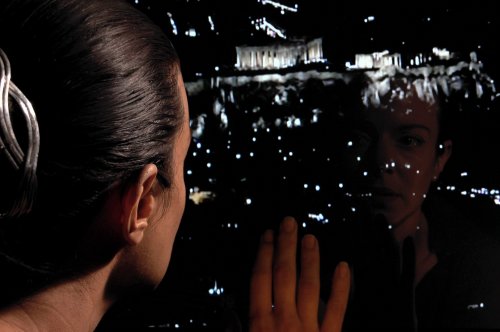
Babeldom
Aelita’s time-travelling sci-fi also dove-tailed with Paul Bush’s “science-fiction documentary” Babeldom, a DIY visionary epic that imagines our coming megalopolises by combining images of the cuttings edges of our current ones (London, Barcelona, Athens, Dubai, Shanghai, Osaka and more) with a range of visual gleanings from the laboratories of university research departments. Part Metropolis, part Alphaville, part La Jetée (absent live people, the footage is held together by what Bush called “a rather old-fashioned love story” recounted in voiceover by correspondents between our present and future), it’s no little original itself, not to mention ravishing food for thought and a particularly remarkable accomplishment as an unfunded production.
If the film has an antecedent it’s in Bush’s own earlier The Rumour of True Things, a shorter experiment with research-lab visuals which he made in 1996, and one of a bunch of films from his dozen-year hot streak (1994-2005) which he brought to Bristol for a retrospective and masterclass. There were also his direct scratch films (His Comedy, Still Life with Small Cup and The Albatross), his excellent run of pixilation movies (Furniture Poetry, Episodes from the Life of Dr Jekyll and Mr Hyde, Pas De Deux De Deux, While Darwin Sleeps), the monologue Paul Bush Talks [watch it on his website] and the ever-reliable live-action-puppet showstopper Busby Berkeley’s Tribute to Mae West. “What most interests me in animation is not the graphic style,” he told the audience, “but the fact that you can change the world, 25 times a second.”
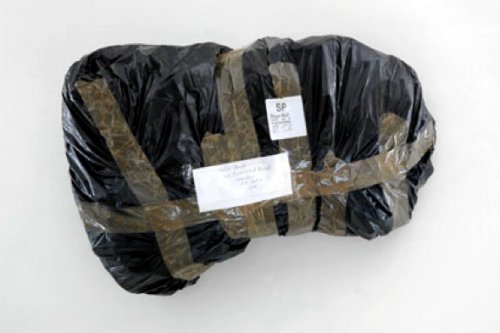
Unusual Red Parcel
Bush’s wit and fine-editing skill always reminded me of John Smith, another alumnus of the London Filmmakers’ Coop (“a community of people who hated each other,” as Bush defined it) who plays with the cinema’s capacities for both narrative and perceptual trickery. I detoured devoutly for the two new Smith videos tucked into different British programmes at Encounters. One, The Man Phoning Mum, also featured time-travelling of sorts, continuing the artist’s recent revisitations of his old work by reshooting his 1976 classic The Girl Chewing Gum on the same Hackney street corner and overlaying it on the original, palimpsest-style.
Rather more fun was Unusual Red Cardigan, a typically droll autobiographical foray (of questionable veracity, no doubt) into the prisms of Google Alerts and eBay that could be considered an askance self-portrait, as well as the seeds of a very modern gothic thriller. Spying on the vendor of a highly priced VHS copy of his films, Smith begins buying up her/his other for-sale items – but what might these sundry discards tell us about this erstwhile Smith connoisseur/fan? And what might ‘serenporfor’ make of the artist becoming her customer? (And did Smith leave her/him any feedback?)
Finally, some recommendations from Encounters’ International programme. Norwegian Gunhild Enger’s Premature, a comedy of embarrassment, is a model low-budget narrative feature, with a deft cast working from a razor-sharp script in a single setting (a car) and unitary time-frame (a young Spanish woman’s first 15 minutes of mounting awkwardness meeting her Norwegian in-laws from the airport).
I was also impressed with much of the ‘All Work and No Play’ programme, beyond the aforementioned Finnish Say Yes and Dance. Yuri Ancarani’s Il Capo (The Chief, 2010, homepage) is a tone poem in light, marble, metal and flesh of a Carrara marble-quarry worker directing diggers like a sun-ripened orchestra conductor, with a widescreen elementalism, and tribute to natural labour, reminiscent of Michael Glawogger’s Workingman’s Death. Dan Geesin’s Elephant Feet (above) is the obverse, a wonderfully played portrait of a debut night from hell working a petrol station’s night shift.
But the crowd-pleaser was surely Till Nowak’s The Centrifuge Brain Project, a tongue-in-cheek portrait of a mad funfair-ride scientist that brings the retro-savvy special effects of the Hipstamatic era to a Look Around You-style science spoof doc:
2. Dylan Cave on the British shorts.
Despite the calendar shift, Encounters marked its eighteenth year with hardly any other changes to the structure and atmosphere of the festival. Mature beyond its year, the festival marked its coming-of-age anniversary with minor embellishments to spice up a well-established programme.
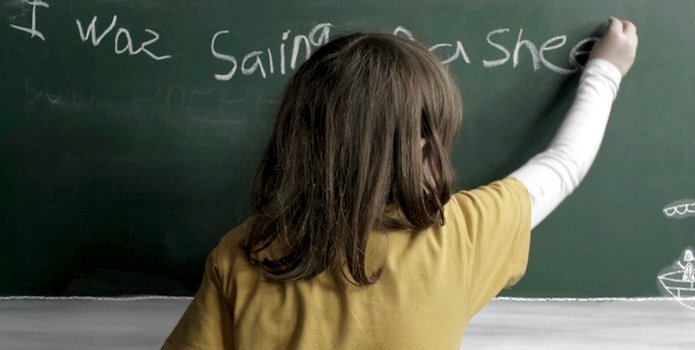
Ailema
The Children’s Jury programme was a good example. A regular selection of international shorts for children, it was this year finalised by a team of 12-to-17-year-olds at Sheffield’s Showcomotion Young People’s Film Festival. Included was Cecilia Frugiuele’s Ailema, a British tale about Amelia, a seven-year-old dyslexic. As she struggles to spell in front of her class, the film offers chalkboard animations – a ‘bare’ tree that morphs into a ‘bear’ tree, for example – that illustrates Amelia’s language difficulties. Simple but effective, it stood out because of the way it handles a serious literacy issue with an ease and imagination accessible to all ages.
Elsewhere, the Best of British strand was shaped around four lucid and engaging programmes, curated by new programmer Gaia Meucci. Standout titles included Amanda Boyle’s Care [Vimeo link], which played in the ‘Loose Ends’ programme. It featured Gina McKee as a bored and lonely home-care nurse who finds herself caught between the dying wishes of an old woman and a rowdy teenage neighbour who she suspects is suffering domestic violence. McKee was initially drawn to the project by its exploration of the way three generations of Newcastle women interact – but Boyle and screenwriter Chloe Moss developed the story to hone in on the difficulty those generations have in actually communicating. It’s only in the denouement, when McKee’s nurse performs an act of ultimate care, that the three women are forced to come together.
BAFTA nominees Karni & Saul also offered one of the most accomplished British entries. An adaptation of a short story by Will Self, Flytopia [homepage] tells of an uptight writer who makes a pact with the thousands of insects who are invading his home. Shot in a luscious but sticky Hungarian location, it’s drenched with a dank verisimilitude that belies the absurdity of the anthropomorphised bugs. The army of flies and their increasing domination is detached from reality but Saul Freed’s seamless digital animation makes the unlikely events amusing and completely believable.
Flytopia played in the ‘Off the Radar’ strand, which also included the equally compelling Londoners [trailer]. Shooting on a a 100-year-old hand-cranked wooden camera with 35mm silent black-and-white film stock, director Joseph Ernst captures modern London street scenes as if they’d been filmed by Edwardian showmen Mitchell & Kenyon, emulating their innocent joy. The aesthetic match encourages us to imagine how our world might look to audiences of the future. The film is being acquired into the BFI National Archive.
British documentary in general was strong this year. One of the festival favourites was Unravel [trailer], a debut doc from Meghna Gupta which used the testimonies of a group of women working in a textile recycling factory in northern India to contrast the different myths and perspectives of Indian and Western cultures. Sometimes surprising – one worker believes the West must have a water shortage, such that it’s easier to throw away clothes than wash them – the film benefits from its scrupulously observational tone, neither patronising its contributors nor embarrassing its primary Western audience.
Cultural difference in a darkly starker form also loomed large in Shirin, in the ‘Power Games’ strand. Over a strained family dinner, teenage Shirin tells her father she’s going out to study; convinced she is seeing a boy, he persuades her to stay home. Writer/director Stephen Fingleton creates a tense family stand-off from this basic premise. Mostly staged as a taught exchange of words, the film weaves a credible verbal interplay that makes clear the tensions between father and daughter while allowing their familial affection to shine briefly through their conversational parries.
Fingleton is to make one of 16 shorts announced at Encounters by the BFI Film Fund and Lighthouse, the digital culture agency that is administering the fund. So too is Adrian McDowall, whose documentary Cutting Loose [Vimeo link] won Encounters’ documentary award. The announcement added to a general buzz circulating at the festival that the future is looking encouraging for British shorts.
3. Jez Stewart on the Animated Encounters
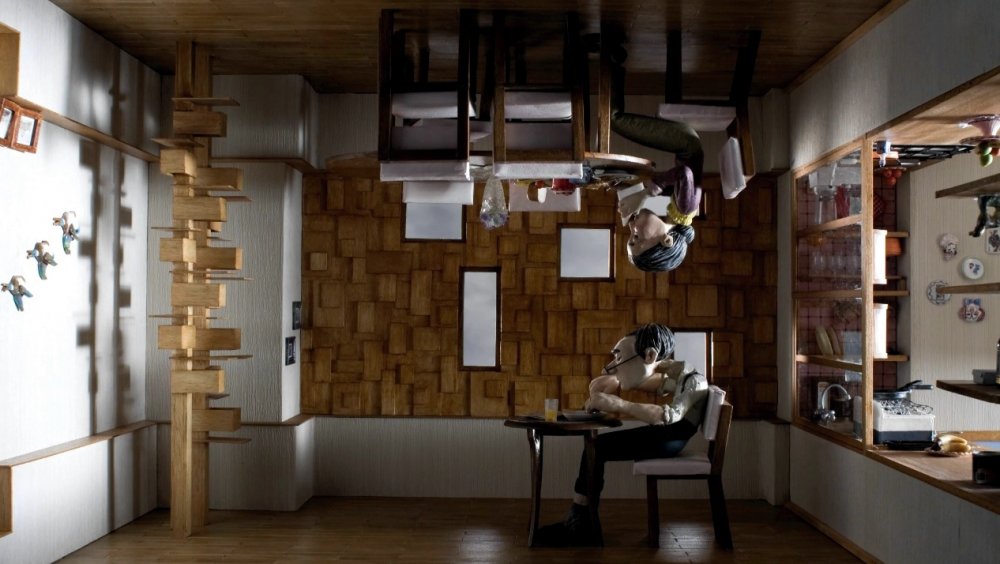
Head over Heels
Animated Encounters is one of the two big animation festivals in Britain, along with the Bradford Animation Festival held at the National Media Museum each November. Each has its strong points, but the Bristol event benefits greatly from its proximity to the strong community of animators in and around the city.
This year the festival’s links with local heroes Aardman helped secure a rare onstage interview with all three directors of the company, Peter Lord, David Sproxton and Nick Park – but arguably the fairly thorough retrospective of their short films which accompanied it gave a better impression of what a diverse and impressive company they’ve become. The Aardman-produced short Pythagasaurus (2011), written and directed by Peter Peake and included in the main festival programme, is a good demonstration of their continuing ability to support adventurous-looking, mature, funny films without an overbite or piece of plasticine in sight.
The bulk of the animation programming was split into six loosely themed programmes offering 80 short films over two days. Personal highlights are led by Don Hertzfeldt’s It’s Such a Beautiful Day (2011; Vimeo on demand link), the third and final part of his Everything Will Be OK trilogy, which is now seeing limited release as a combined feature. Whilst Hertzfeldt’s old-school methods and simplified stick figures are often remarked upon, it’s his unique narrative style – matched by the tone of his own voiceover – that makes his films so effective.
Théodore Ushev’s Lipsett Diaries (2010) was one of the best animated shorts of recent years, and his follow-up Nightingales in December (2011) doesn’t disappoint. You can almost smell the oil and canvas as you are thrust into a relentless flashing sequence of his painterly visions, with some parts as real as others are surreal:
Other highlights from the ever reliable, ever challenging National Film Board of Canada were Paul Driessen’s absurdist parody Oedipus (2011) and the Japanese co-production Muybridge’s Strings (2011) by Koji Yamamura, which dissects time and space in the way that only animation can.
From across the border in the US, Daniel Sousa’s Feral (homepage) creates a deeply impressive, immersive portrait of a ‘wild boy’ through a beautifully textured, monochrome palette and a pitch-perfect soundtrack.
Animation in this country has been chronically short of production funding in recent years, and it is a familiar story that the vast majority of British films in the programme are graduation shorts – the last chance that many promising animators get to truly express themselves. Timothy Reckart’s National Film and Television School short Head over Heels (2012; homepage) beautifully and economically explores the visual metaphor of a husband living on the ceiling and his wife on the floor, to illustrate a marriage grown apart.
Another stop-motion film, Anslie Henderson’s I Am Tom Moody from the Edinburgh College of Art, offers a humorous but moving vision of a singer coming to terms with his subconscious fears. It was awarded the Best of British award here, and has since won two prizes in Ottawa. And Stephen Irwin’s Moxie (2011, above) and Joseph Pierce’s The Pub (below) are both welcome proof that it’s still possible for independent animators to find funds for intelligent, innovative animated films in Britain.
The most remarkable screening of the festival, however, was Heino Pars’ 1979 film When Men Sing, shown as part of a programme of 3D animations from Soviet Russia (see the beginning of this report). This extraordinary short mixed a stop-motion dinosaur and all-male choir with time-lapse photography of ice in a film which was, unfortunately, as unmissable as it is unlikely to get many more screenings in this country.




